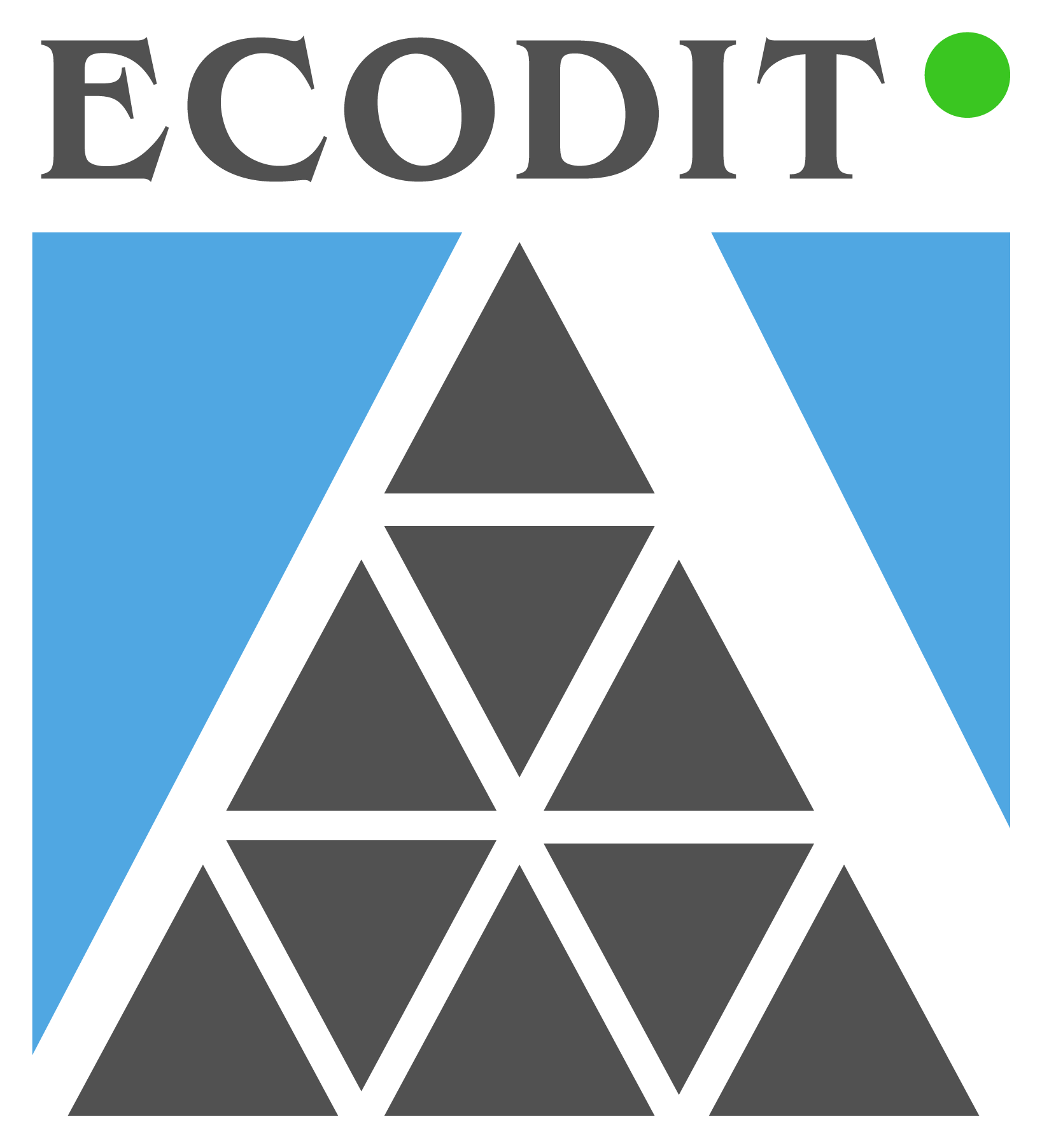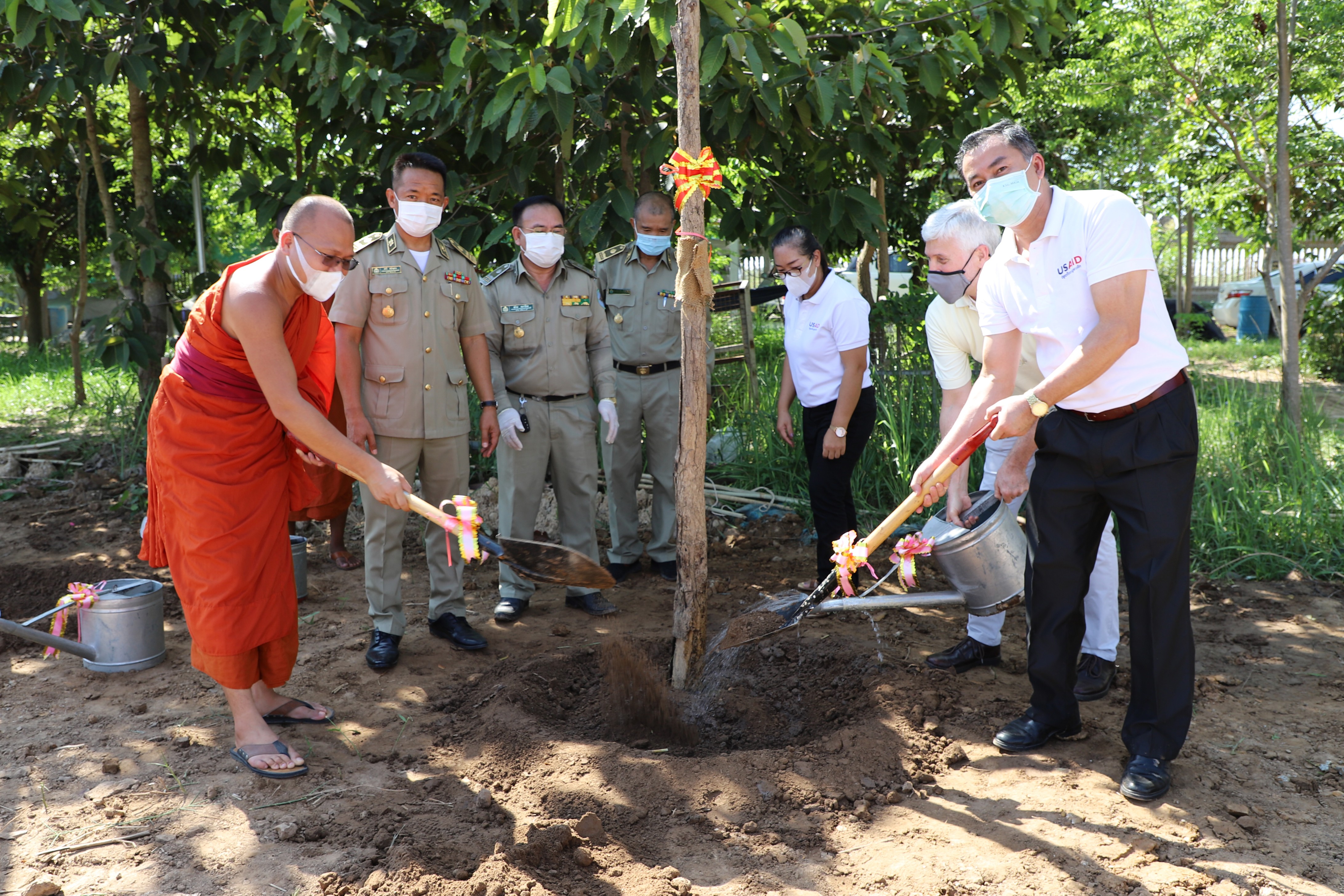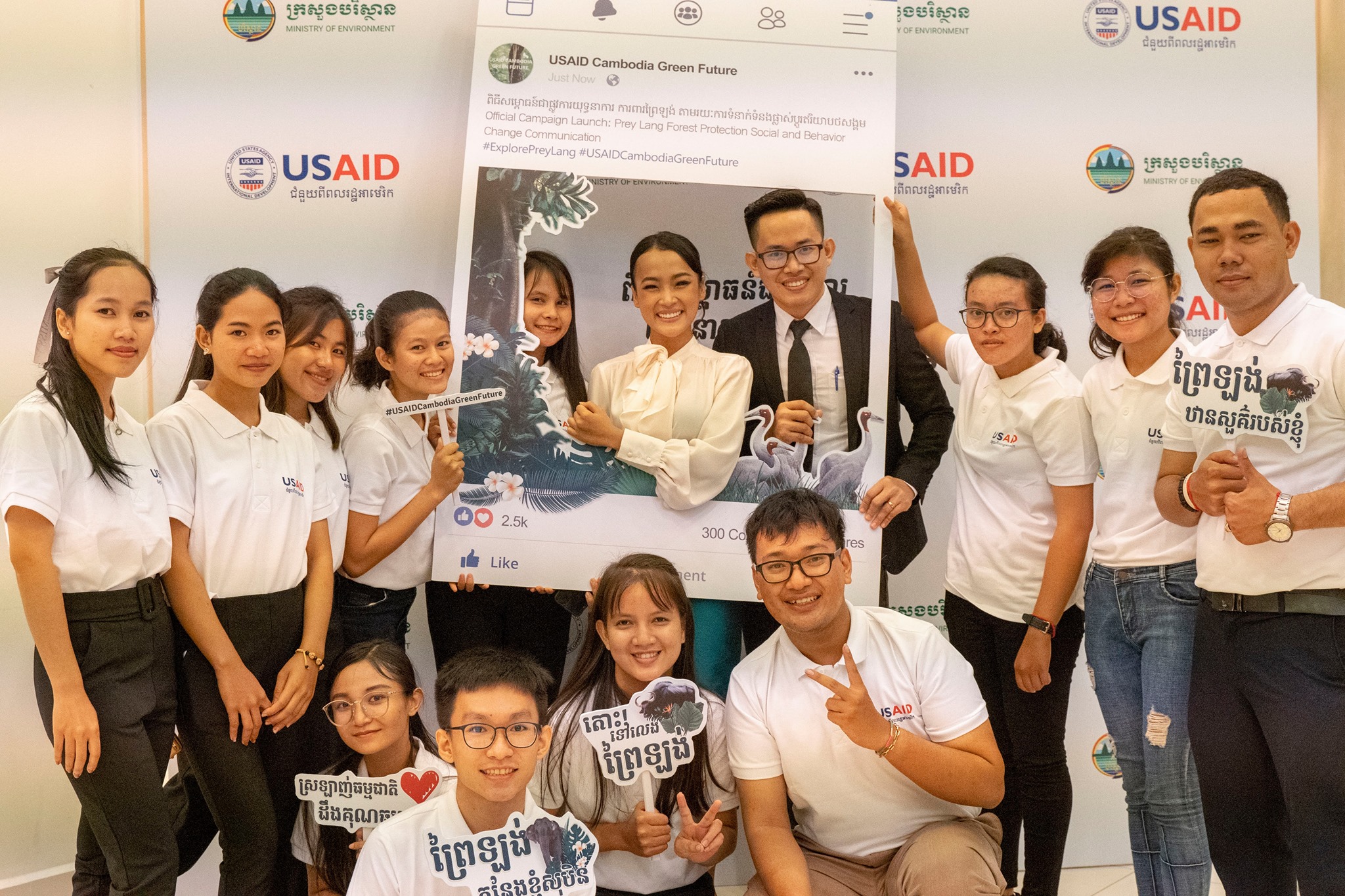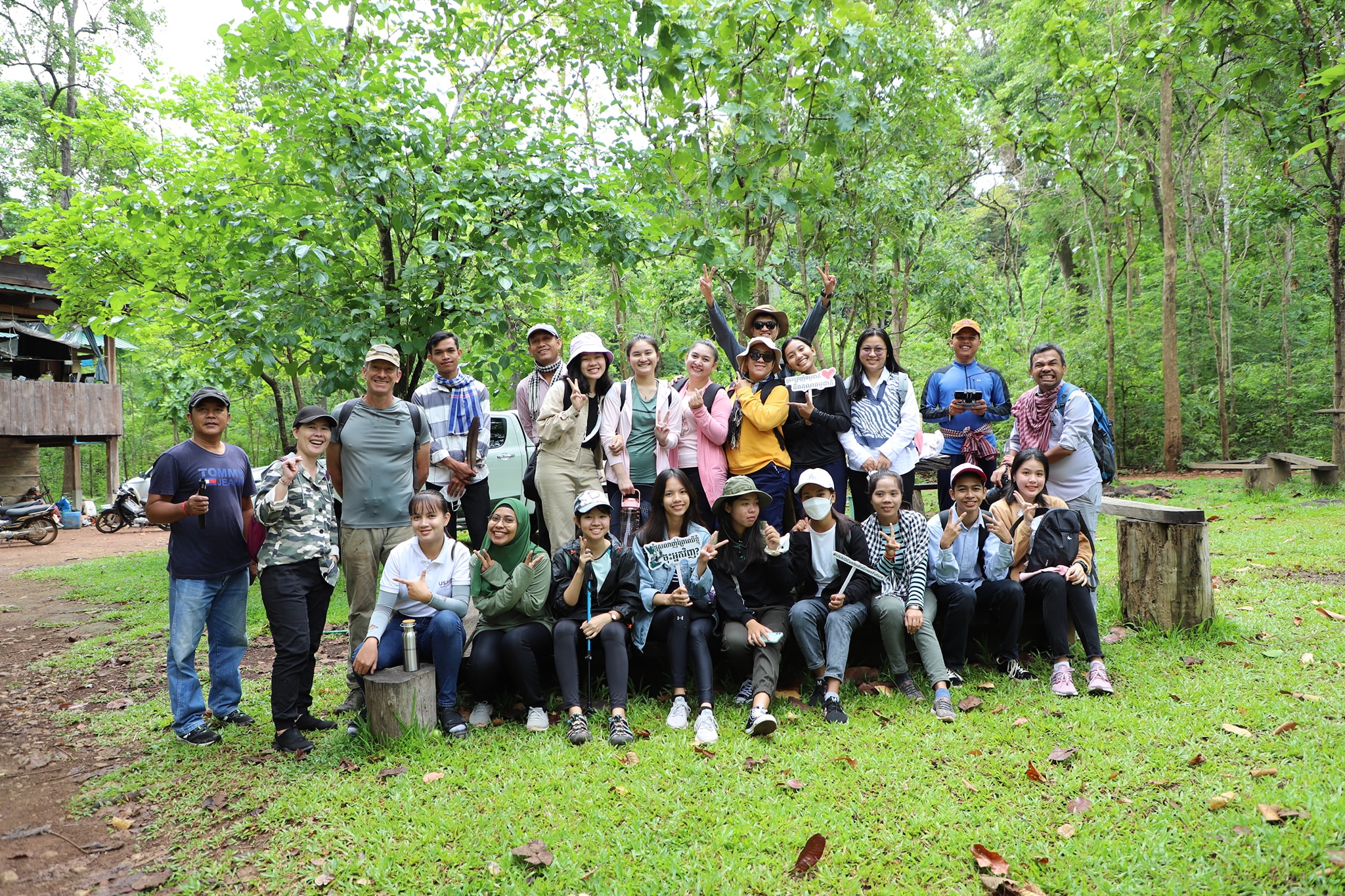

ECODIT: Empowering Cambodia’s Youth as Change Agents for the Environment
By Celia Zeilberger
In Cambodia, ECODIT is working with a diverse coalition of actors—monks, celebrities, indigenous groups, journalists, private sector organizations, and more—to catalyze a dynamic youth movement in support of the environment. Specifically, for the USAID Cambodia Green Future Activity, ECODIT has launched and is implementing a countrywide social and behavior change communication (SBCC) campaign—the first of its kind in the country—that promotes positive behaviors related to biodiversity conservation, forest protection, and sustainable natural resource management (NRM).
This campaign is critically needed in Cambodia, where much of the land is covered by biodiversity-rich forests that are home to countless plants and animals, including endangered species. Hundreds of thousands of people make these forests their home, including many members of indigenous groups. But the forests and the animals, and the people who rely on them for their homes and livelihoods, are in jeopardy due to illegal logging, climate change, and other factors. The future of Cambodia’s significant biodiversity and its indigenous communities hangs in the balance.
The USAID Cambodia Green Future Activity works to empower Cambodian citizens and civil society with the knowledge and skills to use evidence-based communication systems to influence positive actions to support biodiversity conservation, forest protection, and broad sustainable NRM. The project’s three-phased SBCC campaign seeks to raise awareness of small, doable actions that could make a big impact in protecting Cambodia’s environment.

The campaign’s first phase focused on reducing demand for unsustainable luxury wood furniture, while its second phase focused on reducing bushmeat consumption, and its third phase focused on stopping littering. The Activity created SBCC toolkits for each target behavior with communications tips for conversations with family and friends, key message matrixes, and social media content, and trained youth on how to effectively use them. The Activity also organized events, coordinated social media and other outreach, and trained and supported journalists, youth leaders, and social media influencers to communicate with their audiences on these topics.
The campaign’s biggest impact to date has perhaps been the empowerment of youth as agents of change in their communities. ECODIT facilitated the formation of youth “Green Groups” across the country and supported and trained them to lead conversations and plan their own outreach activities on environmental issues. For example, the team conducted study tours for Green Group members to Cambodia’s biodiversity hot spots, where they visited wildlife sanctuaries and connected with local indigenous communities. During these visits, young people learned about the illegal logging trade and spoke with law enforcement officers, who showed them evidence seized from forest crimes.

The Green Groups have made a significant impact on the environmental sector in Cambodia, and the youth have become outspoken voices on these topics, both online and offline. Recently, they participated in a forum with Mr. Michael Schiffer, Assistant Administrator of the USAID Bureau for Asia, and USAID/Cambodia Acting Mission Director Craig Hart, where they brainstormed and identified specific actions that youth can take to promote biodiversity conservation and forest protection.
The efforts of these youth and other Activity stakeholders have had a ripple effect, and Cambodia has seen a marked increase in environmental knowledge, and in behaviors to protect natural resources. Moreover, based on the success of these initiatives, USAID and other donors are now exploring the launch of additional environmental SBCC programs in Cambodia—ushering in a sea change with the potential to protect Cambodia’s future and safeguard its progress.